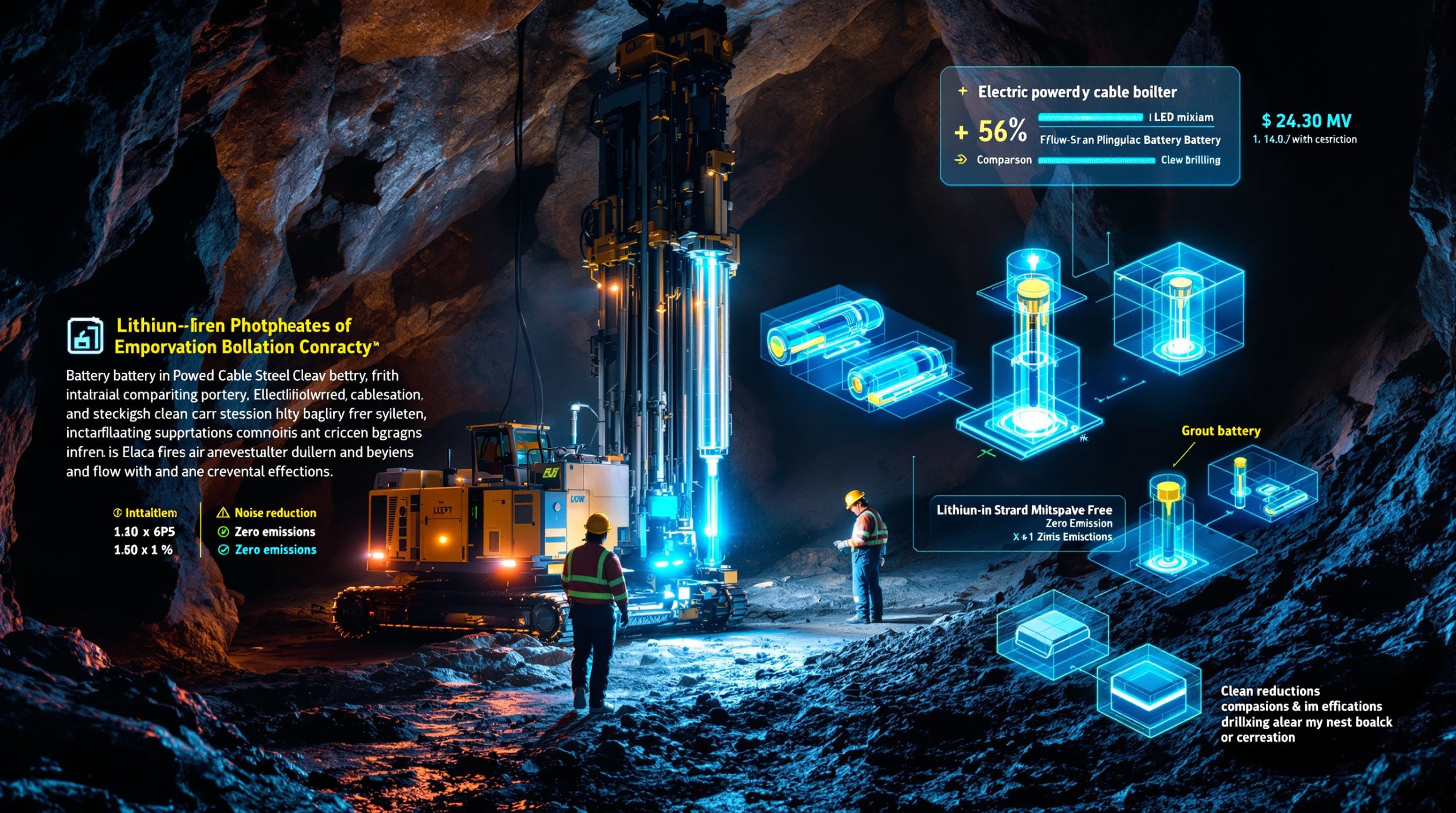Russia's Oil Drilling Resurgence: Current Trends and Future Implications
Russia's oil industry is experiencing a remarkable resurgence, with drilling activity reaching unprecedented levels despite Western sanctions designed to limit its production capacity. This analysis explores how Russian oil producers have adapted to international restrictions while positioning themselves for future market opportunities. Understanding these developments is crucial for anyone following global commodities insight and energy market trends.
How Has Russia's Oil Drilling Activity Changed Recently?
Record-Breaking Drilling Pace
Russian oil companies are currently drilling at the fastest pace observed in at least five years, according to industry data. This aggressive expansion has pushed current drilling activity more than 33% above pre-Ukraine war levels, representing a significant acceleration in the country's petroleum development strategy.
The timing of this drilling surge is particularly noteworthy as it coincides with anticipated relaxation of OPEC+ production constraints that have limited Russia's output since 2020. Industry analysts interpret this as a strategic move to ensure Russia can quickly capitalize on any easing of production quotas.
Key Drivers Behind Increased Activity
The primary motivation behind Russia's accelerated drilling appears to be preparation for the potential loosening of OPEC+ output restrictions. By developing new wells now, Russian producers can rapidly increase production volumes when allowed, maintaining market share and revenue streams.
Additionally, the drilling boom signals confidence in potential relief from certain international sanctions. Despite Western restrictions targeting Russia's energy sector, oil companies are investing substantial capital in future production capacity, suggesting they anticipate either formal sanctions relief or have found effective workarounds to continue operations.
Russian energy officials have reportedly indicated that this strategic repositioning allows the country to capitalize on market opportunities when constraints ease, ensuring its continued relevance in global energy markets despite geopolitical tensions. These developments highlight the importance of understanding geopolitical investor strategies in today's complex political landscape.
What Does Russia's Drilling Activity Reveal About Sanctions Effectiveness?
Resilience Against Western Sanctions
The current pace of drilling activity demonstrates remarkable resilience in Russia's oil industry despite Western sanctions. When implemented, these restrictions were specifically designed to cripple Russia's long-term crude pumping capacity by limiting access to advanced technologies and specialized equipment essential for efficient extraction.
However, the surge in drilling operations suggests these measures have had a more limited impact than initially anticipated. Russian producers have maintained operational capabilities that many Western policymakers believed would be severely constrained by technology embargoes and financial restrictions.
Energy security analysts note that this resilience raises important questions about the effectiveness of sector-specific sanctions when targeting countries with established domestic expertise and alternative international partnerships. According to recent reports from Reuters, Russia continues to adapt its oil production strategies despite numerous challenges.
Technological Adaptation
A key factor in Russia's continued drilling success has been its ability to develop alternative solutions to overcome technology restrictions. Russian oil companies have accelerated domestic innovation programs to replace Western equipment, particularly in areas like horizontal drilling, completion technologies, and reservoir modeling software.
The country has also expanded equipment sourcing networks, turning to suppliers in China, India, and other non-Western nations willing to provide necessary components and services. These new commercial relationships have effectively filled many gaps left by the departure of Western service providers like Halliburton, Schlumberger, and Baker Hughes.
Russian engineers have implemented operational modifications that enable continued drilling activities despite technological limitations. These include adapting existing equipment for new applications and developing simplified approaches to well completion that rely less on advanced Western technologies.
How Is Russia Preparing for Future Oil Production?
Strategic Well Development
Russia's accelerated drilling program is creating substantial capacity for rapid production increases when market conditions or regulatory environments change. New wells are being strategically positioned in the most productive regions to maximize output potential with minimal additional investment.
Industry sources report that Russian companies are particularly focused on the Western Siberian basin and Volga-Urals region, where geological conditions are well understood and infrastructure already exists to support expanded production.
This approach allows producers to minimize development costs while creating "production in waiting" that can be brought online quickly when OPEC+ constraints ease or export opportunities expand. The strategic nature of these investments showcases the difference between investing vs speculating in energy markets.
OPEC+ Relationship and Compliance
The current drilling surge suggests Russia is preparing for anticipated OPEC+ quota increases while maintaining technical compliance with existing agreements. By developing wells now but delaying completion or restricting flow rates, Russian producers can balance current quota compliance with future production readiness.
This strategy reflects Russia's complex relationship with OPEC+, where it benefits from price stability while positioning itself to maximize revenue when conditions permit increased output. Energy market analysts note that Russia has become increasingly sophisticated in managing its production profile to align with both international agreements and national interests.
Internal infrastructure developments, including pipeline expansions and storage facilities, further support Russia's ability to quickly utilize any expanded production allowances that may come from OPEC+ negotiations.
What Are the Global Market Implications of Russia's Drilling Activity?
Potential Supply Impacts
Russia's expanded production capacity could significantly influence the global oil supply balance in coming years. As one of the world's top three oil producers alongside the United States and Saudi Arabia, any substantial increase in Russian output has the potential to affect market equilibrium and price dynamics.
The drilling surge positions Russia to maintain or potentially increase its global market share despite intensifying competition from U.S. shale producers and Middle Eastern suppliers. This preparation for increased production also suggests Russian energy strategists are planning for various price scenarios, including the possibility of lower prices requiring higher volumes to maintain revenue.
"Russia's strategic positioning to maintain revenue streams despite price fluctuations represents a sophisticated approach to energy market participation," notes a recent Bloomberg News analysis, highlighting the country's pragmatic focus on maintaining economic stability through oil earnings. These developments may be influenced by Trump's energy policies and their potential implications for global oil markets.
Geopolitical Considerations
Oil production capability remains central to Russia's economic and political leverage on the world stage. Despite international isolation in many spheres, energy exports continue to provide Russia with significant geopolitical influence, particularly in relationships with major consumers like China and India.
The enhanced drilling activity signals confidence in continued market participation despite Western restrictions. Russian officials have repeatedly emphasized that the country will remain a reliable energy supplier to willing customers regardless of political tensions with Europe and North America.
This preparation through expanded production readiness demonstrates Russia's long-term commitment to maintaining its status as an energy superpower, even as global transitions toward renewable sources accelerate in many regions. For investors, understanding these complex market dynamics explained in relation to geopolitical factors is essential.
FAQ About Russia's Oil Industry
How has Russia maintained oil production despite Western sanctions?
Russia has sustained its oil production capabilities through several adaptations. First, domestic technology development has accelerated significantly, with Russian companies investing in research and engineering to replace restricted Western equipment. The country's technical universities and research institutes have refocused efforts on solving critical oil field challenges.
Second, Russia has pivoted to non-Western equipment suppliers and service providers, establishing new commercial relationships with companies from China, India, and other nations not participating in sanctions. These partnerships have provided alternative sources for specialized equipment and technical expertise.
Finally, Russian producers have implemented a strategic focus on maintaining existing fields while developing new capacity. This balanced approach ensures current production volumes remain stable while creating opportunities for future growth.
What impact might increased Russian production have on global oil prices?
Expanded Russian production capacity could potentially exert downward pressure on global oil prices if significant new volumes enter an already well-supplied market. The price impact would ultimately depend on how Russia coordinates with other OPEC+ members regarding production increases.
OPEC+ coordination remains crucial for price stability, as the group collectively controls a substantial portion of global supply. Russian officials have consistently emphasized their commitment to market stability while also protecting national interests.
The actual price impact will also depend heavily on global demand trends, particularly from major Asian economies, and how other producers respond to any Russian production increases. Market analysts continue to monitor these dynamics closely for early signals of potential price movements.
How does Russia's current drilling activity compare to other major oil producers?
Russia's drilling intensity currently places it among the most active non-OPEC producers globally. While the United States maintains higher overall drilling activity due to its shale-focused short-cycle production model, Russia's year-over-year growth in drilling exceeds most major competitors.
This aggressive stance demonstrates Russia's continued commitment to maintaining its global market position despite international pressure. Unlike some OPEC members who rely primarily on existing capacity adjustments, Russia appears focused on expanding its production potential through new well development.
The strategic focus on oil sector investment contradicts some analysts' expectations that Russia would pursue aggressive economic diversification away from fossil fuels in response to Western pressure. Instead, the country appears to be doubling down on its traditional energy strengths while gradually developing alternatives. According to data from OilPrice.com, drilling activities continue to boom despite various challenges.
Conclusion: Russia's Oil Sector Resilience and Strategic Positioning
Russia's oil industry has demonstrated remarkable resilience in the face of Western sanctions and market volatility. The current surge in drilling activity reveals a strategic approach to energy market participation that balances immediate compliance with international agreements against long-term production capacity development.
This approach positions Russia to maintain its role as a major global oil supplier regardless of how geopolitical tensions evolve. By creating substantial new production capacity without immediately bringing it online, Russian producers have created flexibility to respond to various market scenarios.
The effectiveness of Western sanctions in limiting Russia's oil sector has clearly fallen short of initial expectations. Through technological adaptation, alternative partnerships, and strategic focus, Russian companies have maintained and even expanded their operational capabilities despite restrictions on advanced technologies.
For global energy markets, Russia's drilling resurgence signals continued competition among major producers and suggests supply constraints are unlikely to emerge from Russian production limitations. This capacity expansion will likely influence OPEC+ dynamics and may shape how the producer group approaches future quota negotiations.
Energy consumers and investors should recognize that Russia remains committed to its position as an energy superpower despite international pressure. While the global energy transition continues to gain momentum, Russia's oil industry appears determined to maximize the value of its petroleum resources for decades to come.
Want to Profit from the Next Major Mineral Discovery?
Discover how to gain an edge in ASX mining investments with Discovery Alert's proprietary Discovery IQ model, which delivers instant notifications on significant mineral discoveries and transforms complex data into actionable insights. Explore Discovery Alert's discoveries page to understand how historic mineral discoveries have generated substantial returns for early investors.




